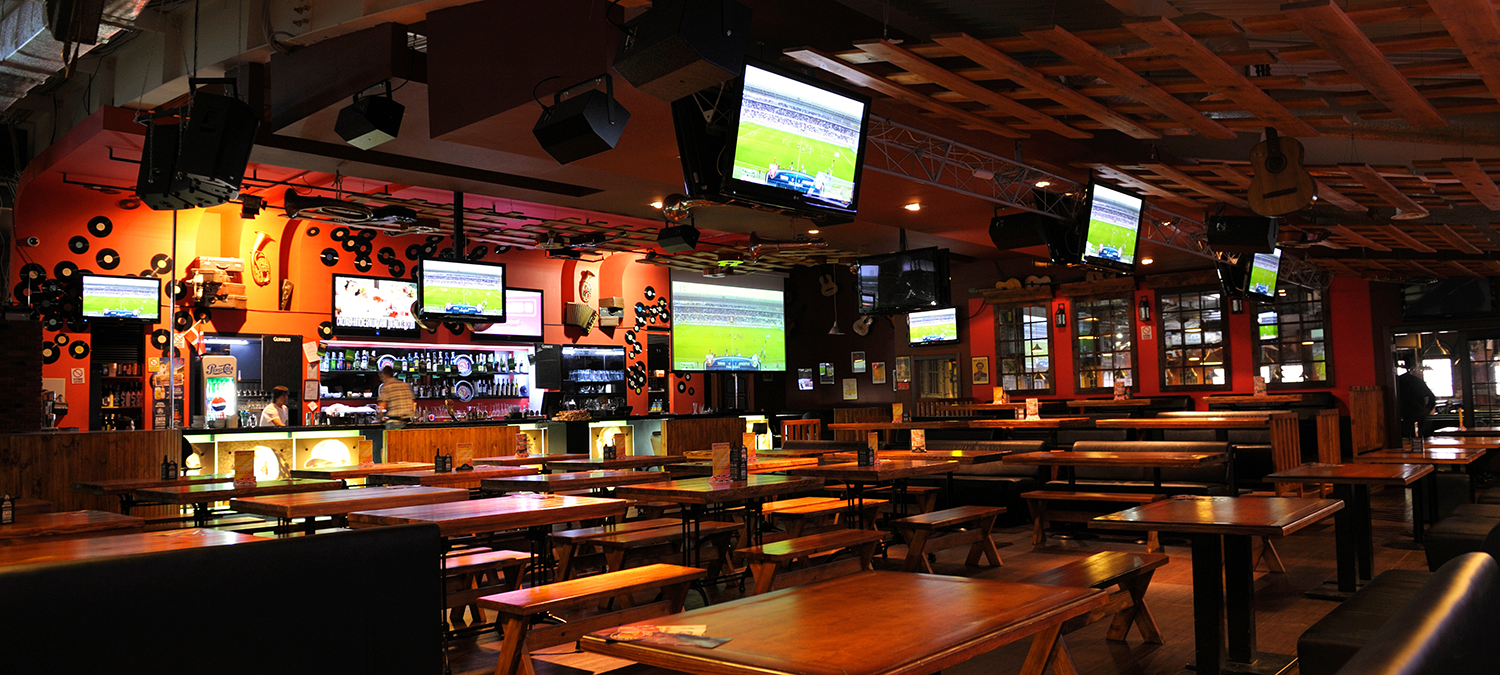Sponsored by Conagra RO*TEL
 Gameday has finally come. You’ve visualized, created, tested, and perfected your menu, in theory. Now comes the execution. Just like the teams playing on your flat-screens on gameday, your staff must play their roles, cooperate smoothly, and remember the common goal they’re all working for.
Gameday has finally come. You’ve visualized, created, tested, and perfected your menu, in theory. Now comes the execution. Just like the teams playing on your flat-screens on gameday, your staff must play their roles, cooperate smoothly, and remember the common goal they’re all working for.
Gameday Starts with the Front of House Staff
Your hosts and hostesses need to control the pace of operations and ensure the guests are being seated with the proper menus. It may seem like it can go without saying, but no shortcuts today. Make sure your hosts team know to only gives guests the gameday menus during the right times.
Dropping your full menu when your kitchen is set up for fewer offerings can be a disaster. Even one table ordering rogue when you’re not properly prepped sets your kitchen behind before they even have a chance.
Your servers need to be walking encyclopedias. With new dishes on the menu, even your most loyal regulars are bound to have plenty of questions. Allergen awareness and other intolerances should be drilled into their heads. A trip back to the kitchen to double-check with the chef can cost you valuable minutes.
Your Kitchen Staff are the MVPs on Gameday

Your prep team and line cooks have an immense load of work before opening. Any chance they have to save time without sacrificing quality should be jumped on. Ready-to-use items from trusted brands makes you more efficient without short-changing your guests. Filling your nacho station with Ro*Tel diced tomatoes, using Hunt’s ketchup or Gulden’s mustard, and serving Vlasic pickles with your burgers and hot dogs rather than making your own in-house can save you both time and labor dollars without affecting the overall composition of your menu.
In an earlier piece, we touched on how important your grill and sauté cooks are to the kitchen’s success. The bulk of your meals will come through one, if not both of those stations. Your cooks need to know how they can put out a dish and then have an on-the-fly method of being able to do it in half the time.
I once had a grill cook take a sheet pan out of his oven to press on top of his grill to put out an eight-top of well-done burgers in 5 minutes. On that same line, my sauté cook would keep a stash of pans in the oven for when he needed to brown a quesadilla without waiting for it to get up to temp. These are not their go-to practices, but their trick plays can help pull you out of the weeds.
Communication is Key to Victory
Most importantly, these two cooks must be in constant communication with each other and the other cooks on the line. This is where a skilled expeditor can make all the difference. The key is to never, ever stop talking.
Expediting a kitchen through a gameday rush is a constant conversation and whoever’s running your window should be louder than an NBA point guard, calling out plays and keeping everyone aware of their assignments. Coordinating cooking times, “all day” counts, meat temperatures, and holds & fires is just as important as dropping enough fries. Silence is death to a kitchen; never let it go quiet.
Any auxiliary staff you can use to take pressure off your key players are worth their weight in gold. Deep lines at the bar can be avoided by strategically placing servers with ice cold coolers of beer and a handheld POS system. Chicken wing buffets and raw bars can reduce the flow of tickets pouring into the kitchen. Your bussers and food runners are going to earn their keep. The less time your servers and managers spend in the kitchen, the more they can attend to your guests. Hospitality doesn’t go by the wayside just because you’re busy.
Be Ready to Support Your Team

So, with all these plans in place what could go wrong? Besides everything, of course. There is no sports metaphor more fitting for the restaurant business than the old Mike Tyson adage, “Everyone has a plan until they get punched in the mouth.” Inevitably, you’re going to get hit, and your staff has to know how to react.
Their response starts with your leadership. If the captain panics, the ship goes down. Stay poised and slow things down rather than speed them up. Make sure your host staff spaces out the seatings. This gives your servers more time to communicate with guests, your kitchen a chance to thin out the rail, and your bartenders an opportunity to clear up those drinks at service bar.
You get your team back on track and get back to the game plan. Most importantly, once this first service is over, you debrief with your staff. The menu and the operations behind it are living, breathing organisms in your restaurant. You must adapt them and apply a little Darwinism — either evolve or eliminate the weak links cialis generico prezzo. The season may seem long, but you want to be in playoff form sooner rather than later.











Leave A Comment
You must be logged in to post a comment.